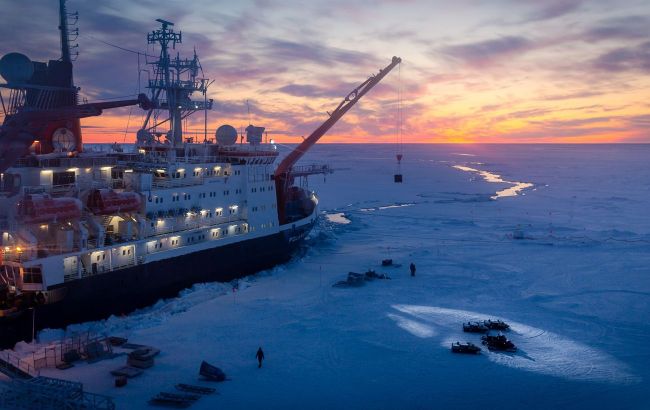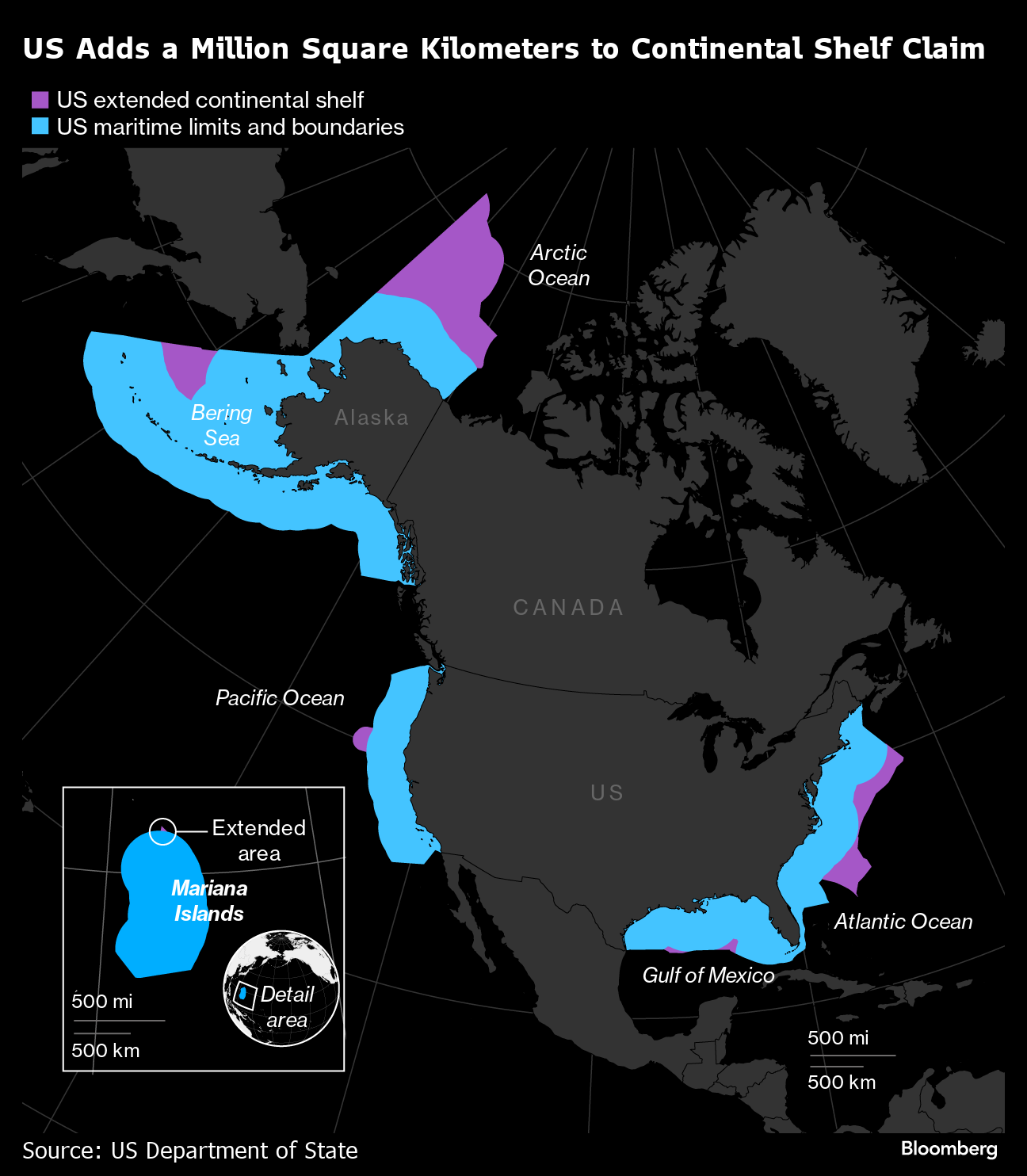USA expands control over Arctic continental shelf: Russia responds with threats
 USA expands control over Arctic continental shelf (photo: wikimedia)
USA expands control over Arctic continental shelf (photo: wikimedia)
The United States has expanded its claims to the resource-rich ocean floor and continental shelf in the Arctic, which is twice the size of California. In this way, Washington is trying to preserve mineral reserves that are crucial for the development of future technologies, states Bloomberg.
The so-called "extended continental shelf" covers about 1 million square kilometers (386,100 square miles), mostly in the Arctic and Bering Sea, a strategic area also claimed by Canada and Russia. In addition, the United States has outlined shelf boundaries in the Atlantic, Pacific, and Gulf of Mexico.
The long-awaited decision marked the outer limits of the U.S. continental shelf, the country's land territory under the sea. Under international law, countries have economic rights to natural resources on and below the seabed within their continental shelves.
 Map: U.S. Department of State via Bloomberg
Map: U.S. Department of State via Bloomberg
James Kraska, a professor of international maritime law at the U.S. Naval War College, noted that the U.S. continental shelf contains 50 solid minerals, including lithium and tellurium, as well as 16 rare earth elements.
Bloomberg reminds that according to the latest estimate of the U.S. Geological Survey, conducted in 2008, about 90 billion barrels of undiscovered oil and 1.670 trillion cubic feet of gas, as well as critical metals necessary for electrification, lie below the Arctic Circle. At the same time, most of these estimates are based on onshore exploration, and the offshore potential has hardly been explored.
What the Law of the Sea says
The 1982 United Nations Convention on the Law of the Sea, which the United States has not yet ratified, regulates maritime zones around countries. According to the document, countries have the right to any resources in the sea or on the seabed within their so-called exclusive economic zones, which can extend up to 200 nautical miles from the coast.
In addition, countries may claim economic rights to resources on or below the seabed where their continental shelf extends, although not within the water column. The seas above them also remain international waters.
Russia, Denmark, and Canada have been waiting for years for their disputed Arctic seabed claims to be considered by the Commission on the Limits of the Continental Shelf, a UN-backed panel. In early 2023, Russia was the first to receive a decision from the institution.
The State Department noted that in the future, the United States will need to establish maritime borders with Canada, the Bahamas, and Japan, where their claims overlap. The department added that the United States uses similar rules to define its extended continental shelf as set out in the United Nations Convention on the Law of the Sea (UNCLOS), which the Joe Biden administration supports.
Rebecca Pincus, director of the Polar Institute at the Wilson Center, noted that the decision to unilaterally delineate the boundaries of its continental shelf, instead of ratifying UNCLOS and then applying, could cause acute dissatisfaction among other countries.
In her opinion, this also reduces the likelihood that the United States will ever ratify the Convention. After all, in this case, to declare control over the seabed, the requirement of the Commission on the Limits of the Continental Shelf (CLCS) should be taken into account.
Russia promises a tough response
The authorities of the Russian Federation have already responded to the U.S. decision. First Deputy Chairman of the Federation Council Committee on International Affairs Vladimir Dzhabarov said that Russia also claims this part of the shelf and is ready to defend its interests.
"Russia should react quite firmly. Because all countries that are related to the Arctic region should have equal rights. We already gave them (the U.S. - ed.) a large shelf in 1990, because of Shevarnadze's thoughtless decision (Eduard Shevarnadze, USSR Foreign Minister from 1985 to 1990. - ed.) Appetite comes with eating. It doesn't matter what they claim. Russia has exactly the same rights as the Americans, if not more," Dzhabarov said.
Struggle for control over Arctic resources
Experts have repeatedly noted that the next confrontation between Russia and the West will take place in the resource-rich Arctic. For a long time, this region of the world has been aloof from geopolitics, but climate change is making this region of the planet more and more attractive from an economic point of view.
In particular, Russia is considering using the Northern Sea Route to deliver goods to Asia. This route can reduce delivery time by 40% compared to the Suez Canal. However, delivery through thick ice and frost poses serious problems.
On November 2, 2023, the United States imposed sanctions on the Arctic LNG 2 project, a natural gas production and liquefied natural gas production project by Novatek on the Gydan Peninsula (on the other side of the Gulf of Ob from Yamal).
Gas supplies from the Russian Arctic LNG-2 project have been postponed due to U.S. sanctions. The project operator has declared force majeure.

